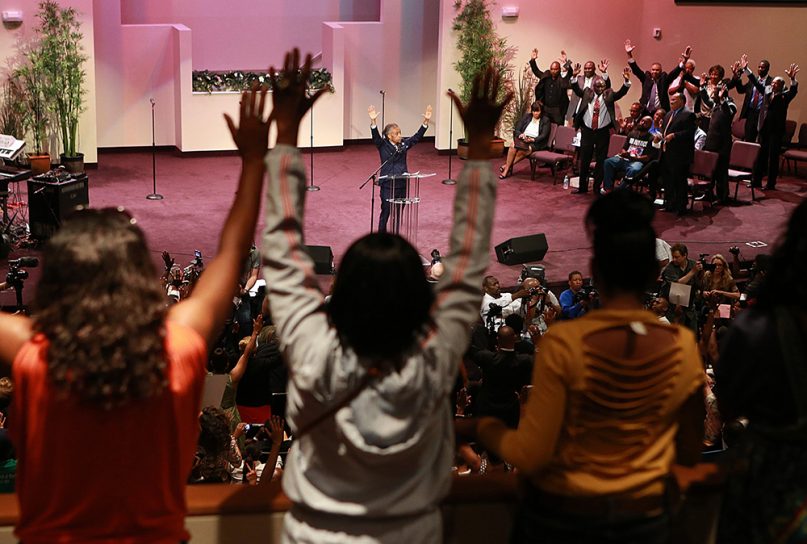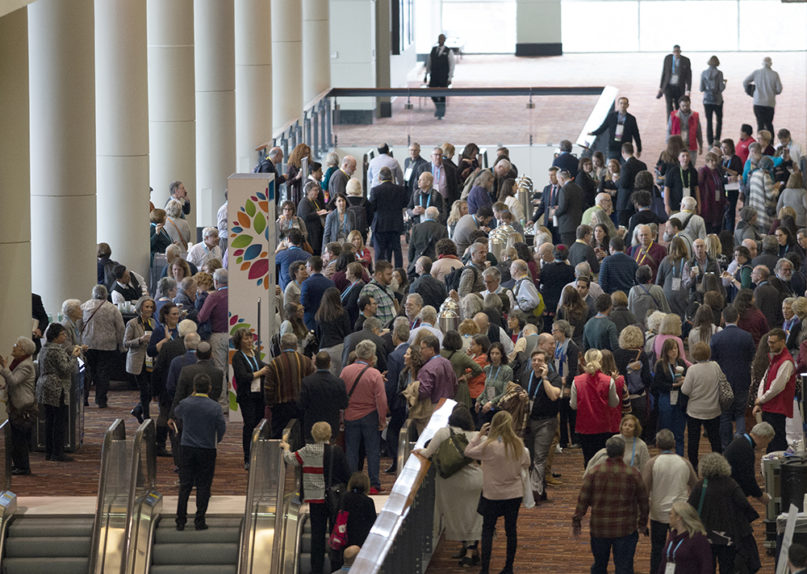(RNS) — Delegates to the Union for Reform Judaism’s biennial meeting in Chicago on Friday (Dec. 13) voted overwhelmingly to advocate for the creation of a federal commission to study and develop proposals for reparations to African Americans for slavery.
The resolution is the first such effort on the part of an American Jewish organization but has precedent among some Protestant groups.
The text of the resolution not only urges the federal government to act; it also commits the movement’s 850 congregations in the U.S. and Canada to redress the effects of historic and ongoing racism and evaluate institutional efforts to promote racial equity.
The Reform movement is the largest Jewish denomination in North America, comprising more than a third of the total U.S. Jewish population.
Rabbi Jonah Dov Pesner, director of the movement’s Religious Action Center of Reform Judaism, said the resolution went through a rigorous vetting process. It was drafted by the denomination’s Commission on Social Action and sent out to its member congregations for discussion and debate. The denomination crafted a vehicle for congregants to consider reparations called Reflect, Relate, Reform that allowed them to study and consider ways to get involved in advocating for an end to mass incarceration and fighting white supremacy.
“In the context of the deaths of Michael Brown, Freddie Gray, Tamir Rice, Sandra Bland and the emergence of a reality that we had a painful resurgence of racism and white supremacy — Charlottesville, etc. — many of our rabbis and lay leaders were asking what should we be doing at this moment in American history to fulfill our legacy as a movement committed to racial justice?” said Pesner, referring to the names of black Americans killed at the hands of police.

The Rev. Al Sharpton, center, speaks at Greater Grace Church in Florissant, Mo., on Aug. 17, 2014, during a rally for justice for Michael Brown, an unarmed teen shot and killed by Darren Wilson, a Ferguson police officer. Photo by Christian Gooden/St. Louis Post-Dispatch
The Reform movement has had a storied history of social justice activism, especially during the civil rights movement of the 1950s and ’60s. One of its members, Kivie Kaplan, served as the national president of the NAACP from 1966 to 1975. Several others had a hand in drafting the Civil Rights Act of 1964 and the Voting Rights Act of 1965.
Black and brown Reform Jews helped guide the movement on the issue of reparations, Pesner said. But as the resolution itself notes, the idea of reparations is not new to Jews. Since 1952, the German government has paid more than $70 billion in reparations to more than 800,000 Holocaust survivors.
“It’s time for the country to have a national conversation about what effective, strategic reparations would look like that would both address systemic racism but also be good for America as a whole,” he said.
With passage of the resolution, the movement will now advocate for HR 40, a bill that establishes a Commission to Study and Develop Reparation Proposals for African Americans. The bill has not yet come up for a vote.
(Adelle M. Banks contributed to this story)





